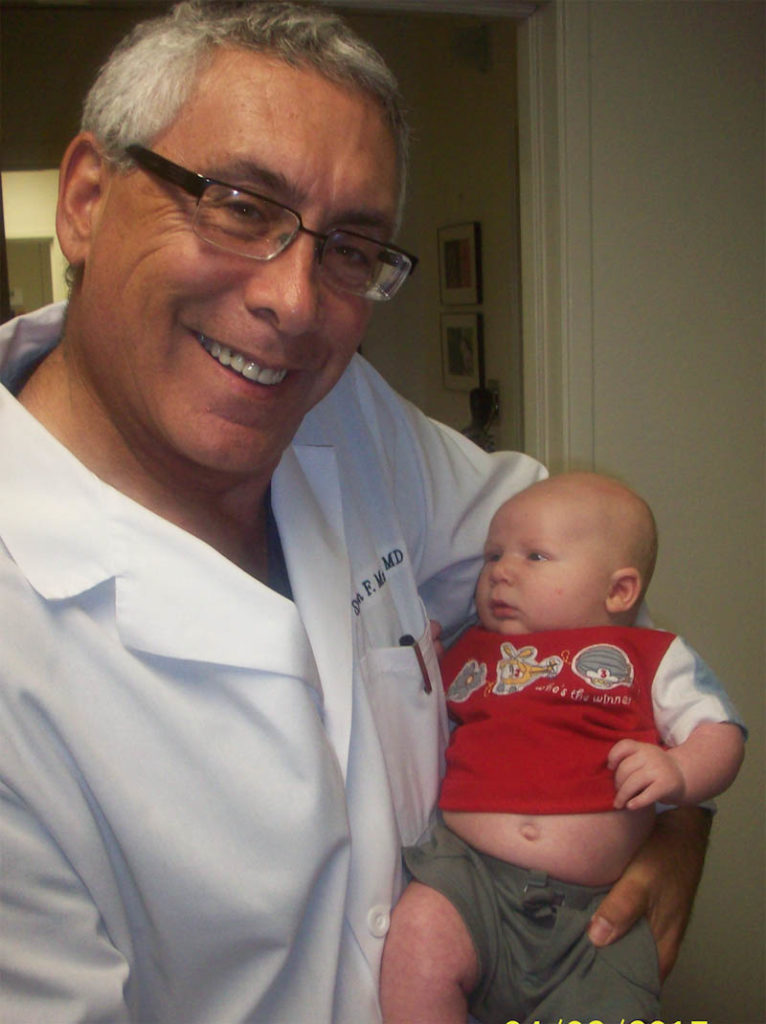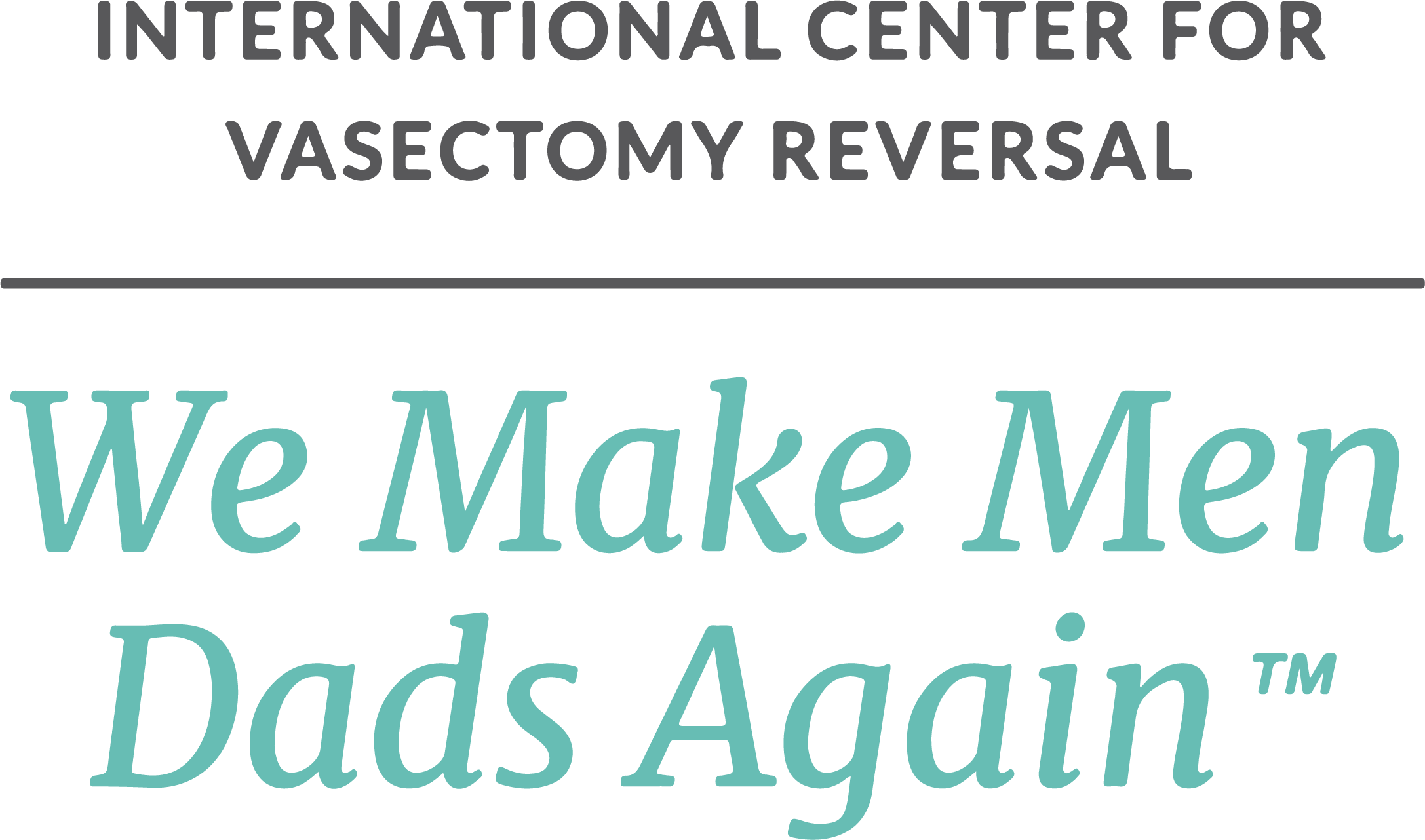Will a Vasectomy Reversal Work after 10, 15, 20 or 25 Years After Vasectomy?
The Truth About the Number of Years Since the Vasectomy and Vas Reversal Success Rates in 2025
Yes, with HIGH SUCCESS RATES!
Yes, men can have very high vas reversal success rates, as high as 99.5% in the hands of a skilled and experienced urologic microsurgeon, as far out as 42 years from vasectomy!
This high success rate after vasectomy reversals is based on the published literature, including a paper we are honored to have published in the leading male fertility journal Andrology and a presentation at American Society of Andrology.
The goal of this page, by vasectomy reversal authority, microsurgeon and author Sheldon Marks MD, is to provide accurate, up-to-date information regarding the facts about the number of years since vasectomy (also known as the obstructive interval) and the potential impact on vas reversal success rates.
Successful Vas Reversals after 40+ years
We hear far too often:“But my doctor said a vasectomy reversal could not work because I am 10 years out from vasectomy!” This is so wrong on many levels. This incorrect information is not supported by the world’s expert opinions, what is published in specialty journals, what we teach every year at international fertility and vasectomy reversal courses and what is in the leading (and only) textbook for doctors about vasectomy reversals.
Many doctors still don’t realize this and mistakenly tell their patients that a vas reversal can’t work because they are too far out from the vasectomy. This is not true! They don’t realize that they are quoting success in 2025 from old 1970’s data and publications – they are telling men today what can be expected based on 40-year-old information from old, abandoned techniques and outdated decision-making.
The doctors of ICVR even have the world record, a successful vas reversal 42 years from vasectomy!
We ONLY Do Vasectomy Reversals at ICVR
Here at our full time, vas reversal only center we have a proven, published very high success rate as high as 99.5% for vas-to-vas connections in most men, even those who are 10, 15, 20 and 25 years or more from the vasectomy! What our doctors found in a review of 2660 vasectomy reversals (see graph) is that the longer the obstructive interval from the vasectomy, the higher the likelihood that there will have developed deeper epididymal blockage and so the patient will need a vas-to-epididymal bypass on one or both sides. The need for a vas-to-epididymal bypass starts at 2 years after vasectomy, gradually increasing until it levels off and plateaus at about 20 years from vasectomy. This means that the chances for vas reversal success stay the same whether the man is 20 or 42 years out.

No doctor can accurately say what technique will be needed beforehand based only on the number of years from vasectomy, yet many still do!
There is no way to determine whether the man will need the straightforward vas-to-vas connection (VV) or the epididymal bypass (VE) before the vas reversal. Experts confirm an d the literature proves that no one can accurately predict what technique will be needed on either side based only on the number of years from vasectomy.
Chances for Vas Reversal Success Stay the Same Whether 20 or 42 years from Vasectomy!
Doctors used to incorrectly think that the longer the interval from vasectomy to the vas reversal, the more likely there will be an epididymal blowout from the build up of pressure within the tiny tubules of the epididymis where the sperm mature and so the higher the chances for needing the vas-to-epididymal bypass. This paper demonstrated that this is not true in the hands of skilled, trained and experienced urologic microsurgeons. This published review combined data from our own full-time, vas reversal practice with those of our friend and respected colleague, Dr. Paul Turek.
The Science Behind Vas Reversals after 7+ Years Since Vasectomy
As seen on this graph, the need for a bypass is significant starting at about 7 years from vasectomy, where 1/3 of all men will need a bypass on one or both sides. Even at just 3 to 4 years, there are times when we find deeper blockage and so have to perform VE’s. Every paper that looks at this, and at every course or lecture, the experts say the same thing – if the doctor can’t or won’t perform a vas-to-epididymal bypass, then it not in the patient’s interest for the surgeon to only perform the vas-to-vas reversal on every patient, even for men less than 10 years from vasectomy. The take home message is that the "One Size Fits All" is not appropriate for vasectomy reversals. We just had several patients that needed a VE bypass that were less than 5 years from vasectomy.
"If your doctor is limiting what they do to just the straight forward vas-to-vas connection on every patient, that is the equivalent of getting an Uber or Lyft driver that will only turn right and will not make any left-hand turns to get you to your destination. The process will work for many, but most certainly will not work for all."
- Dr. Sheldon Marks

Trust the Vasectomy Reversal Experts at ICVR
Experts agree that prospective patients should ask these questions and consider the issues and concerns about doctors that proudly announce that they only perform vas-to-vas connections on every patient, no matter what the microscopic analysis of the vasal fluid shows should be done. Just as bad, top leaders will caution men about the surgeons that decide what technique each vas reversal patient will get ahead of time, only based on the number of years from vasectomy or only how the vasal fluid appears without performing a microscopic analysis to look for the presence or absence of sperm.
quick links
RELATED RESOURCES
Contact Us at ICVR for all your questions about Vasectomy Reversals
ICVR’s team of senior professionals are available to answer any questions about our personalized, custom full time, vas reversal only practice or about precision microsurgical vasectomy reversals or aftercare. When ready to set up a no-cost, zero obligation in office or Google Meet consultation with either of our two microsurgeons, please call today to start the process.
This page was reviewed, edited and updated March 26, 2025 by Sheldon H.F. Marks, MD.



